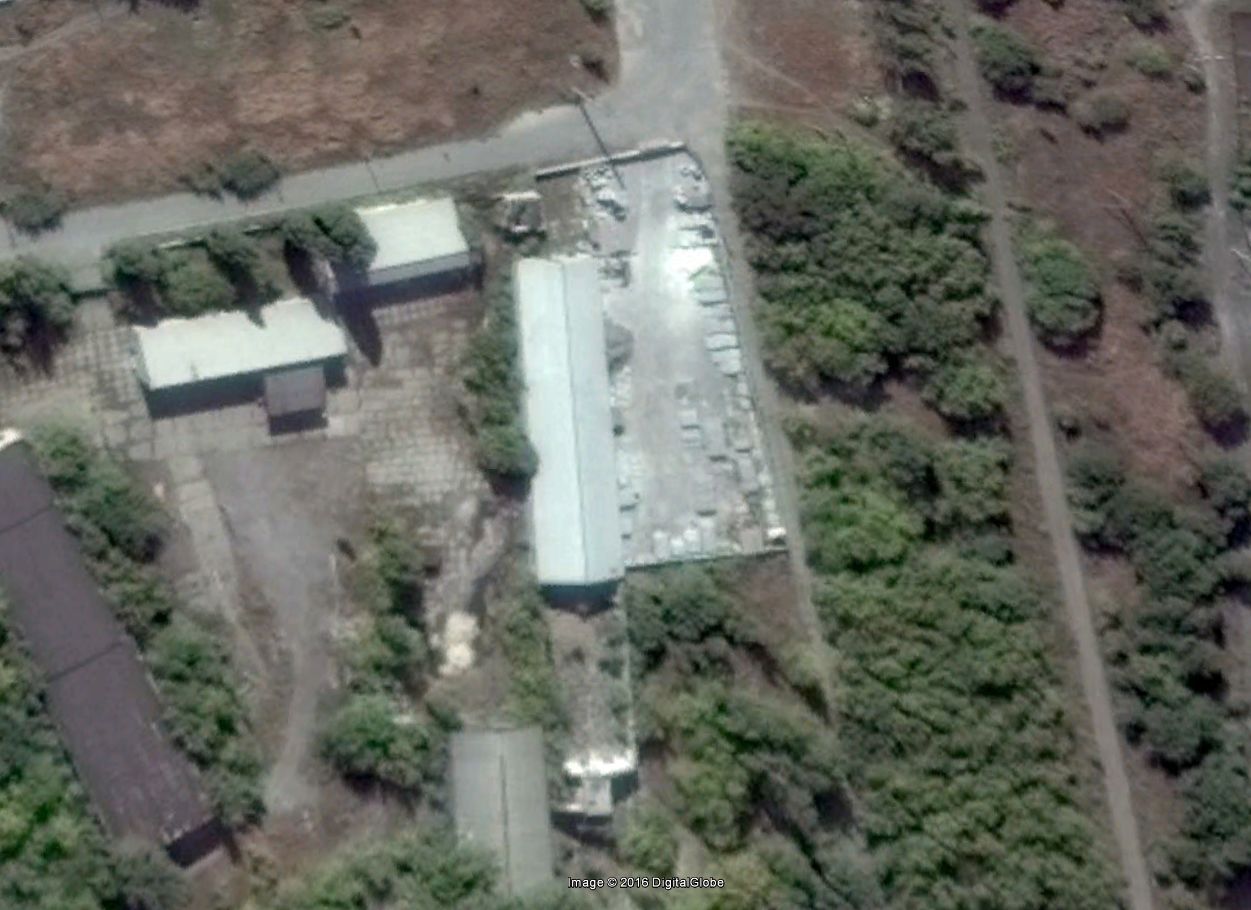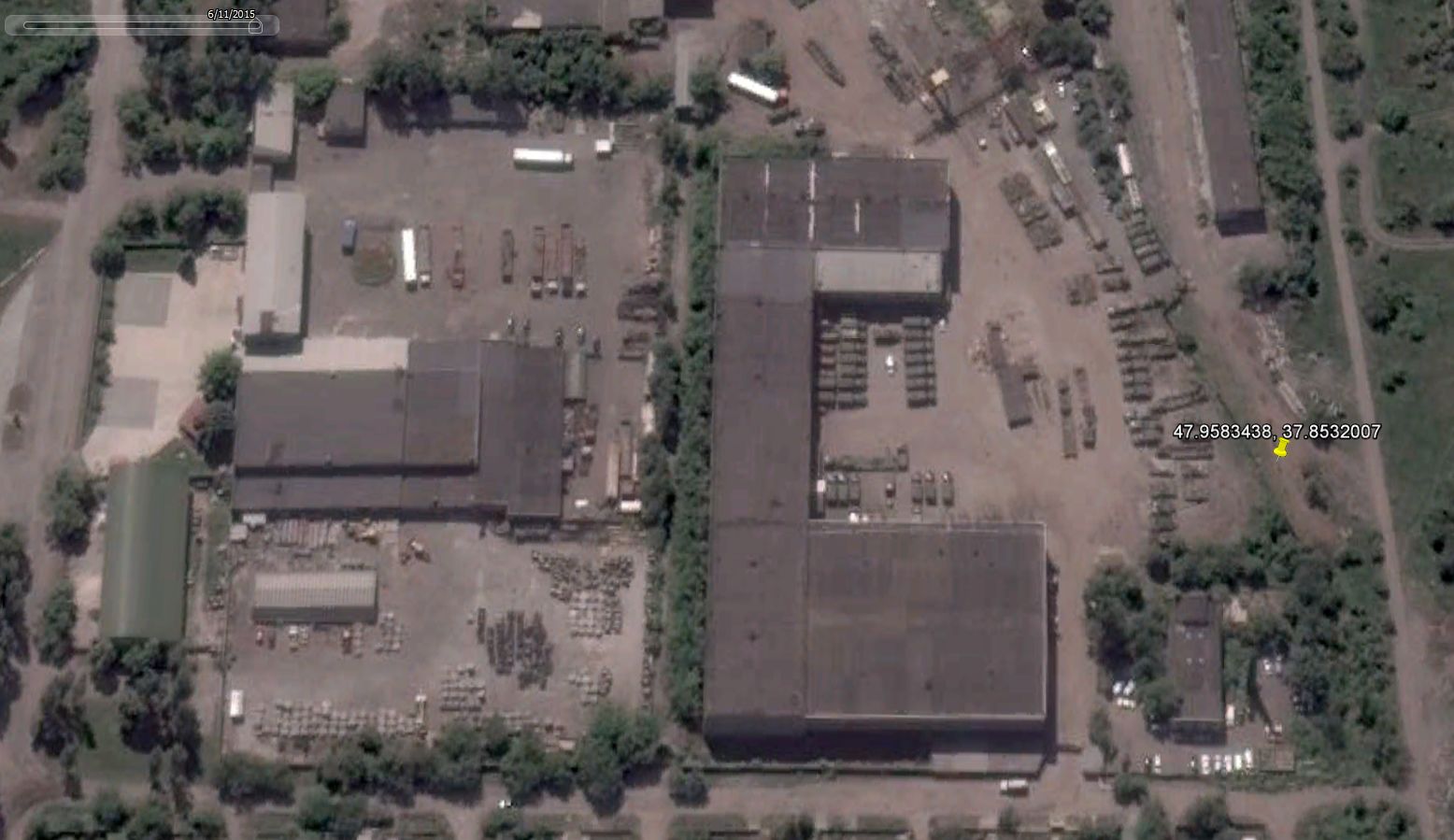Ukraine Day 959: LIVE UPDATES BELOW.
Yesterday’s live coverage of the Ukraine conflict can be found here.
- READ OUR SPECIAL REPORT:
An Invasion By Any Other Name: The Kremlin’s Dirty War in Ukraine

A new Russian-language report by the Eastern Human Rights Group details how Russian-backed separatists in the occupied Donbass region of Ukraine have turned Ukraine’s prisons into slave labor camps with deteriorating conditions.
The report focused on the prisons that were seized by the Russian-backed and self-declared “Lugansk Peoples’ Republic,” or LPR.
According to the report, before the conflict in 2014, Ukrainian prisoners used to work for wages and for time off of their sentences. Since the takeover of some of the prisons by Russian-backed militants, conditions in the prisons decayed, the pay stopped, and sometimes so did the food — but work was increased, and failure to work was punished with brute force. The BBC reports:
Profits from the sale of goods made by the inmates – which came to 34m hryvnias in 2012 (£1m at current exchange rates) – are distributed among the LPR leadership, the report alleges.
“About 5,000 people work without payment every day in order to preserve their life and health, to receive visits from relatives and not to die of hunger,” it goes on. “All this takes place for the purpose of enriching a certain group of people in the so-called LPR.”
One man quoted anonymously in the report says that to deter prisoners from rebelling, those regarded as potential troublemakers are occasionally beaten up by masked police. On one occasion, he says, an inmate was badly hurt but refused medical help and died as a result.
Another un-named inmate is said to have been denied any food and water for three days, in order to force him to return to work. One talks about being forced to stand for eight to 10 hours per day in a courtyard that is hot in summer and cold in winter.

'Slave labour' in the prisons of eastern Ukraine – BBC News
Human rights activists in eastern Ukraine say they have evidence that slave labour camps reminiscent of Soviet gulags are operating in rebel-controlled areas. A newly published report alleges that 5,000 people in the self-declared Luhansk People's Republic are held in solitary confinement, beaten, starved or tortured if they refuse to carry out unpaid work.

The Ukrainian investigative blog InformNapalm has located a significant quantity of Russian armor and artillery deployed only 15 kilometres from the front line, in Donetsk city, in violation of the Minsk withdrawal agreement.
The group has presented photos taken by Ukrainian volunteers using a drone. They show more than 20 T-72B and T-64BV tanks, at least two 2S1 Gvozdika self-propelled 122 mm howitzers, numerous BMP infantry fighting vehicles and MT-LB personnel carriers, as well as command and signals equipment.
According to InformNapalm, the photos were taken here, in the southeast of separatist-held Donetsk city.
Comparison of the drone photos with satellite imagery from Google Earth confirms this is the location:
One Ukrainian soldier was killed and two wounded yesterday as the Ukrainian military reports 48 attacks by Russia-backed forces, including the use of heavy artillery.
According to this morning’s report from the Ukrainian military ATO Press Center, Ukrainian positions in Zaytsevo, north of separatist-held Gorlovka, were shelled with 152 mm artillery, in addition to 120 and 82 mm mortars.
In Avdeyevka, north of Donetsk, Ukrainian troops reportedly came under fire from not only the same calibre mortars, but also tanks.
Ukrainian MP Yevgeniy Deidei wrote on Facebook last night that heavy fighting had broken out in the Avdeyevka area at around 18:00. Deidei also reported the use of tanks and mortars, in addition to automatic grenade launchers.
The narrator of this video, capturing the sound of shelling last night in Avdeyevka, says that this is “the ceasefire in full-swing.”
In the south of the Donetsk region, the ATO Press Center reported twenty attacks in the Mariupol sector, near Pavlopol, Vodyanoye and Shirokino, where Ukrainian troops reportedly came under fire from BMP infantry fighting vehicles.
Announcing the combat casualties, Defense Ministry spokesman Colonel Andriy Lysenko told reporters in Kiev today that there had been particularly heavy shelling near the Lugansk village of Krymskoye.
According to Colonel Lysenko, more than 130 mortar shells were fired over the course of four hours. He also reported mortar shelling near Novoaleksandrovka, further to the west.
It was in Krymskoye that the Ukrainian military suffered yesterday’s fatality.
According to Oleh Tyhanibok, leader of the far-right Svoboda party, Myroslav Mysla from Kharkiv, a member of his party and officer in the 93rd Mechanized Brigade, was killed yesterday morning in the village.
Meanwhile Oleg Morgun, the separatist-backed head of the municipal administration in Yasinovataya, southeast of Avdeyevka, claimed this morning that nine homes in the town had been damaged overnight by Ukrainian shelling.
According to Morgun, Ukrainian troops used 120 mm mortars, damaging homes on three streets.
— Pierre Vaux
A Ukrainian journalist, Roman Sushchenko, has been detained in Moscow on charges of spying.
News of Sushchenko’s detention emerged last night after members of the Moscow Public Monitoring Commission (ONK) encountered the journalist while visiting the Lefortovo pre-trial detention facility (SIZO).
ONK member Zoya Svetova told Open Russia that they had come across the 47-year-old Ukrainian “entirely by chance.” He was being held in a quarantine cell.
Lefortovo staff prohibited the ONK from asking Sushchenko about the criminal case against him, but he said that he was accused of being a spy. He claimed that investigators had “applied psychological pressure” during his arrest, and that he had not been allowed to call home and inform his wife of his arrest.
The Russian Federal Security Service (FSB) announced this morning that Sushchenko had been arrested “while conducting espionage activities” and was an agent of the Ukrainian Defense Ministry’s Chief Intelligence Directorate (GUR).
Interfax reports that the FSB claimed that Sushchenko had been
“deliberately collecting state-secret information on the activities of the the Armed Forces and National Guard of the Russian Federation, the dissemination of which abroad would inflict damage on the defensive capability of the state.”
According to the report, Sushchenko was arrested in Moscow on Friday.
The FSB claims that Sushchenko holds the rank of colonel in the GUR.
He is being charged under Article 276 of the Russian Criminal Code (espionage). A Moscow court has sanctioned his arrest until November 30.
Russian state television reported that the “Ukrainian spy” had been arrested “red-handed.”
Roman Sushchenko works as the Paris correspondent for the state-owned Ukrinform news agency.
His employer has released a statement:
Ukrinform is indignant at the illegal arrest of own correspondent, who has been working at the agency since 2002, and has been Ukrinform’s own correspondent in France since 2010.
Ukrinform stresses that at the time of arrest, Roman was on vacation and arrived in Moscow for private purposes. He was detained in Moscow on the day of arrival and the Russian side, in violation of all international rules, didn’t inform anybody on his detention – neither his wife nor diplomatic institutions, even Ukrinform – his place of employment.
His wife Anzhela, who is still in France, learnt about the detention of her husband on Sunday morning after calling relatives as she couldn’t make any contact with him for two days. However, his relatives were speaking very carefully, avoiding even the word ‘detained’.
Immediately after this, Anzhela Sushchenko called the ‘hotline’ of the Ukrainian Embassy in Russia, and then sent an official document to the Embassy about her husband’s disappearance. Ukrinform and Anzhela Sushchenko learnt about Roman’s alleged involvement in espionage from reports in Russia’s media”.
The Ukrainian Foreign Ministry said:
“We are deeply outraged by the fact that the Ukrainian journalist, who arrived in Russia to visit close relatives, was detained by the Russian authorities on far-fetched charges of ‘espionage’. We consider this as another step in purposeful policy of the Russian Federation to use Ukrainians, who are in the hands of its authorities, as political hostages in its hybrid aggression against our country.”
Mark Feygin, the Russian lawyer who previously defended Nadiya Savchenko, the Ukrainian military officer illegally abducted from the Lugansk region in 2014, and Nadiya Tolokonnikova and Maria Alyokhina of Pussy Riot, has announced that he is to represent Sushchenko.
Translation: So, on the request of his wife and the management of UKRINFORM, I am defending Roman Sushchenko.
— Pierre Vaux









